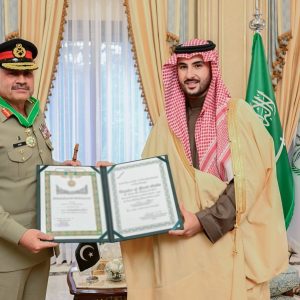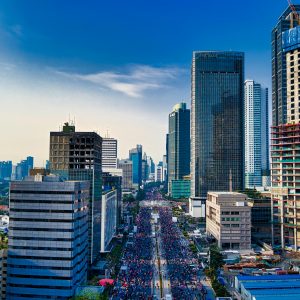Kashmir G-20 tourism meeting has broader political message: Analysts
SRINAGAR, Jammu and Kashmir (AA): India is set to host the third G-20 working group meeting in the Jammu and Kashmir region from May 22-24 as head of the 20-nation group.
The location is to send a message to the world that the contested region is a non-negotiable part of the country, said analysts.
It is the first major international event to be organized there since August 5, 2019, when the Muslim-majority region’s autonomous status was scrapped, raising fears that Muslims would be rendered a powerless minority.
Since then, the Hindu nationalist Indian government has been pushing the narrative that the region was like any other part of India and its autonomy had been a hindrance to its economic development, in addition to breeding separatism.
Senior journalist and political commentator from the Jammu region, Tarun Upadhyay, said that holding the meeting exclusively in the Kashmir valley — which is nearly 97% Muslim and the hub of the 32-year-old insurgency — is a politically-loaded message for Pakistan, the Kashmiri people and the world at large.
“To the world, India wanted to convey that Kashmir is like any other part of the country. If a G-20 meeting can be held in Goa, it can be held in Kashmir,” said Upadhyay. “For Pakistanis, the message seems to be ‘forget about Kashmir.’ For Kashmiris, the message is ‘wipe out the idea of separatism from your heads’ as the world has acknowledged our claim on Kashmir and the powerful grouping of nations is enjoying our hospitality in your midst.”
“This is the narrative the ruling BJP (Bharatiya Janata Party) seems to be pushing by holding the meeting in Kashmir. How far that succeeds remains to be seen but in the end, they would have to talk to the people of Kashmir to resolve this,” he said.
Apart from deliberations on tourism, foreign delegates would be taken on a sightseeing tour to the Gulmarg ski resort, Anadolu learnt from officials who requested anonymity as they were not authorized to speak to the media.
A schedule for the three-day event has not been issued and it is not clear if guests will meet political leaders.
As a prelude to the meeting, the University of Kashmir held Y20 (Youth 20) Consultation on May 10 and 11, which saw 17 youth delegates from G-20 countries discuss climate change and disaster risk.
In a region where an armed anti-India insurgency has been raging for the past 33 years, security measures have been tightened.
Police Director General Vijay Kumar recently told reporters that India’s special forces, including marine commandos and elite National Security Guard troopers, would be deployed to help secure the dignitaries. They would complement tens of thousands of police, army personnel and paramilitary soldiers already deployed across the beautiful valley.
Security would be specially tight after two deadly attacks in the region in April and May, which killed 10 soldiers, including five elite paratroopers.
After unconstitutionally scrapping the region’s autonomy, India has ramped up diplomatic efforts to bolster claims for the move. This was condemned by Pakistan and China, which control parts of the region.
India has invited parliamentarians from Europe to Kashmir twice since 2019 amid criticism that handpicked people were paraded to defend the scrapping of autonomy and the division of the region into two federally ruled territories directly from New Delhi through the office of the lieutenant governor. Elections have not been held since, although the Indian government has repeatedly assured that the region’s statehood would be restored and elections would be held.
The assembly of the erstwhile state of Jammu and Kashmir could pass laws independent of Indian parliament and the state had its own Constitution and flag.
Imran Nabi Dar, a spokesman for National Conference, the largest political party that has ruled the longest in the region’s chequered history, said: “The irony is that while this meeting is being held in Kashmir, Kashmir has been removed from a democratic process.”









